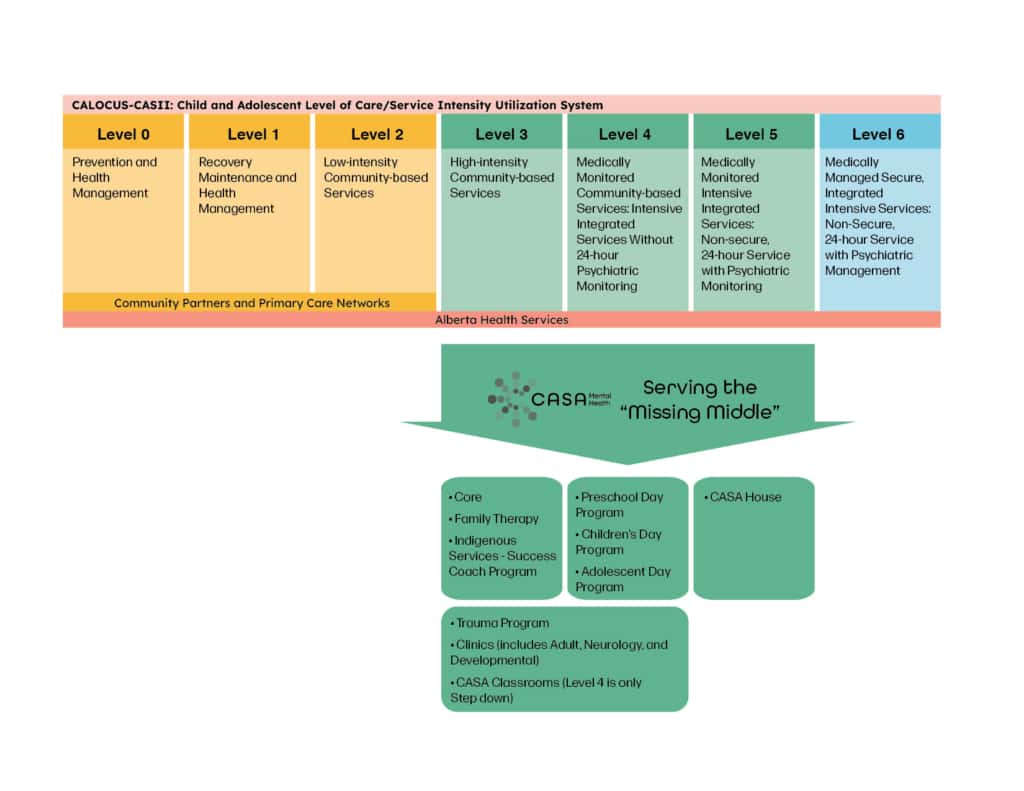CASA Mental Health is meeting kids where they are.
The non-profit organization has been offering services for nearly 40 years. It was started for families, by families who identified a need for medical intervention for kids with mental illness.
While many organizations support people’s mental well-being, CASA focuses on the “missing middle,” treating mental illness and providing medical intervention in between prevention and promotion in primary and community care, and acute treatment in hospital.
Services include the Core program, where patients are seen by a therapist or psychiatrist, specialty programs like Trauma and Family Therapy, and several residential and day programs, including CASA House, a secure live-in facility that children and their families choose to attend.
Since the pandemic, there is a higher level of care required and an increased complexity in kids’ mental health. Families are finally talking about mental illness, and CASA’s medical professionals are here to treat it.
“Mental illness is like physical illness, some of it is environmental and some of it is biological,” says CASA CEO Bonnie Blakley. “Some kids will develop mental illness and it’s about us intervening sooner, so that there’s less acuity, less episodes over time and more ability to be resilient and thrive in the community. Our goal is always to do that, so that kid is never getting into that emergency room and that hospital bed.”

Part of CASA’s five-year roadmap is to double the number of children, youth and families being treated, from 4,000 to 8,000. The organization is currently in the second year of the plan and by the end of 2023, it is expected more than 5,500 children, youth and families will be treated.
While more patients are being seen, wait times are also going down.
“An example is our Trauma program. That used to be a 10-month waitlist and it’s now three weeks. That’s almost unheard of. That’s so important for families; that’s a difference maker,” Bonnie says.
When a child is struggling with mental illness, it’s not just the child who is affected. That’s why CASA provides wraparound service to the whole family unit.
“We’re seeing more intensity and acuity of kids, it’s going to require a longer term response and it needs to be the whole family in order to do it. That’s what our supporters do for us,” Bonnie says.
CASA’s work would not be possible without the support of the organization’s board, who has been championing the journey to treat more children and families.
“They see the need and they’re willing to try and find a way to get to where all kids are.”

